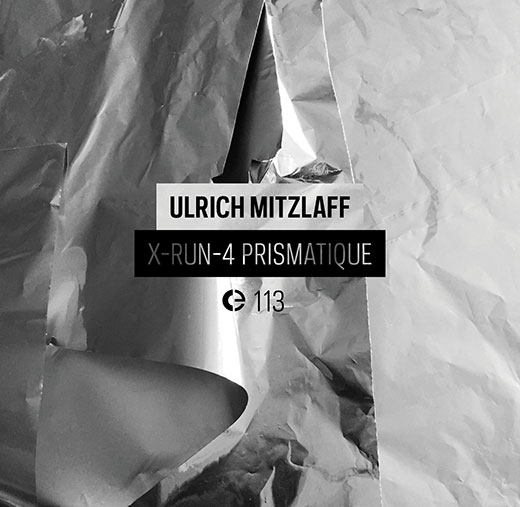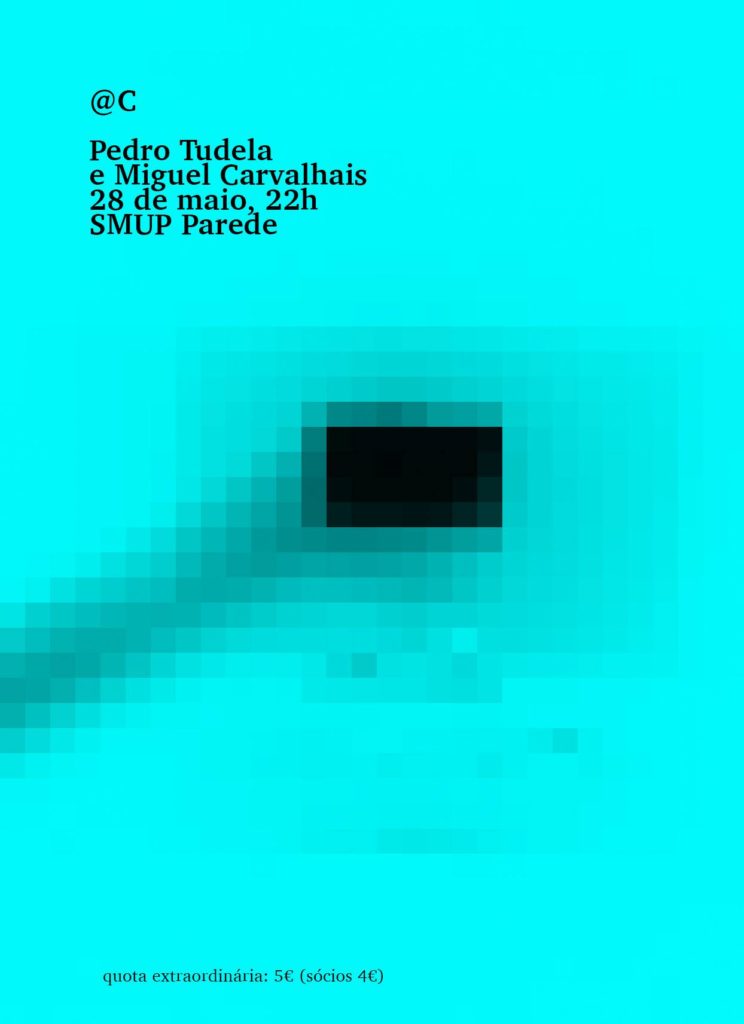
Next Saturday, May 28, @c (Pedro Tudela & Miguel Carvalhais) will perform at SMUP Parede. Copies of their new album “Three-Body Problem” will be available!
Soon in Crónica: “Is the Space Empty Only to be Filled with the Energy of this Voice?â€
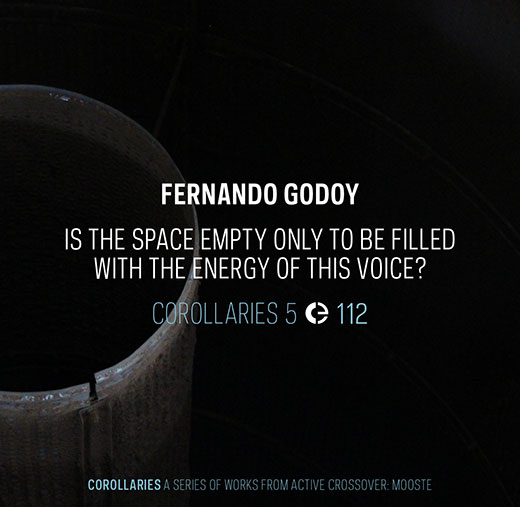
“Bittersweet Melodies†reviewed by Blow Up
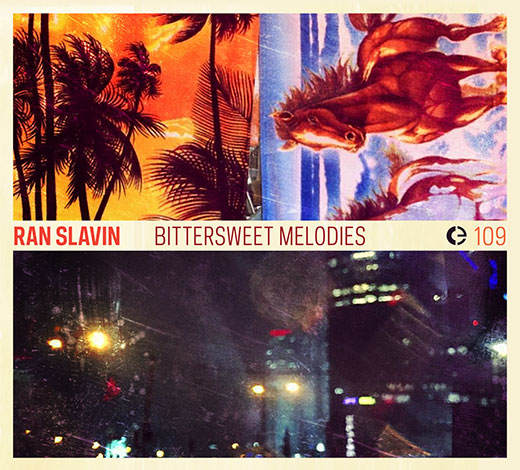
Slavin combina musica e video e ha un curriculum niente male. Questi sono pezzi rimasti non pubblicati nell’ultima dozzina d’anni. Pur nella varietà di sonorità e riferimenti si avverte una unità di fondo, une stile, forse meno appariscente di quanto sia in sostanza. Notevole il piglio narrativo, quasi un susseguirsi di scorci cinematografici o polaroid. Più che outtakes sembrano note ai margini. Girolamo Dal Maso
“Bittersweet Melodies†reviewed by Amusio

Der Israeli Ran Slavin ist in erster Instanz Multimedia-Künstler. Und weiterhin Musiker. Im weitesten Sinne. Sein Schaffen ist von arglistiger Täuschung sowie didaktischer Raffinesse gekennzeichnet. Die für ihn charakteristische Trennung von realen und irrealen Räumlichkeiten sowie das prozessuale Verfassen von sichtbar unsichtbar gemachten Zuständen schlägt sich auch auf seinem bereits elften Studioalbum nieder. Bittersweet Memories (Crónica) stellt zwar unentwegt Bezüge her, lässt diese jedoch derart resolut kollabieren, dass sich aus der Vielzahl der Optionen eine Lesart aufdrängt: die bittersüßen Erinnerungen sind die Vorboten einer in sich (und zurecht) verbitterten Weltwahrnehmung.
Die Titel sind bezugsreich gewählt: Category: Murdered Entertainers, Fake Sunsets, Dubai Dawn, Sinatra Was Here, Deserted New Buildings. Oder eben, selbstreferentiell: Collapsing Melody. Dennoch vermeidet Ran Slavin konsequent griffige Entsprechungen. Zumal das Album insgesamt eine Wirkung auslöst, die das Gewesene eines jeden Szenarios in die Nivellierung überführt.
Einzig der mit einer stoischen Verabschiedung von verbrämter Nostalgie schwingende Ausklang (Discreet Features) erlaubt einen Hinweis aufs Konkrete. Und selbst dieser wird allgemein (und umso verbindlicher) gehalten: Im Vernehmen der Zeit als Konstante der Vergänglichkeit wähnt sich die inflationär getaktete Imagination gegenüber dem Wert von Realitäten als haushoch überlegen. Auch wenn es sich bei diesem Haus nur um ein weiteres „deserted new building“ handelt.
Die seltsam vor sich hin plätschernde Gebrauchselectronica von Bittersweet Memories, die eine gewisse (und gegebene) Nähe zur Haus-Ästhetik von Mille Plateaux offenbart, entzieht sich der Verantwortung. Ihre Gegenständlichkeit transportiert weder Druck noch Appell. Und doch gelingt es, so denn überhaupt etwas gelingen sollte, einen soliden Schiedsspruch zu sedimentieren: Tempus fugit. Wer heute resigniert, kann morgen schon frei sein. Beunruhigend und verheißungsvoll zugleich, oder? Stephan Wolf
via Amusio
“Roha†reviewed by Musique Machine
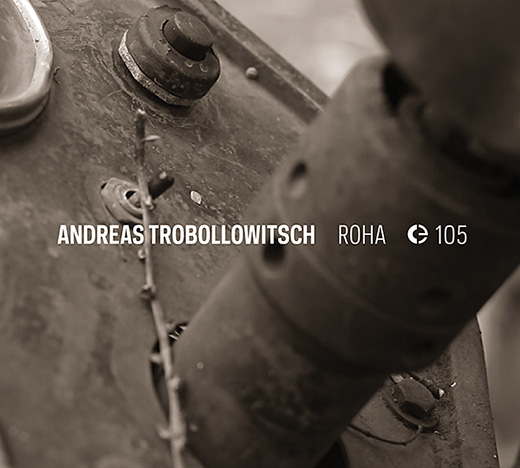
Andreas Trobollowitsch is an avant garde composer previously heard in the band Acker Velvet, whose debut was released in 2012. “Roha” is his only solo full length, as far as I can ascertain. The album is a concise 35 minutes, with 8 different pieces within its running time.
My initial impression of the album is that is a flurry of naked, at times laceratingly bright metallic textures, uncomfortably close to the ear: detuned strings, squeaking unoiled cranks, and scraped cymbals. It would seem each sound has been painstakingly adjusted into a tense and forlorn wailing interval. On display are the ringing and cold overtone structures of man’s materials, created as they were for practical purposes, with so many side effects.
The structure of the music is hypnotic, cyclical and droning, imperfect but effective loops created by patiently and meditative repeating the same physical actions. The intuitive pulse Andreas follows is irregular, but certainly present. Presumably overdubbing over his own free rhythm performances, there are many moments when a cluster of instruments stab in a rough cluster around the same moment, creating a seasick sense of deliberation.
His music inhabits a middle ground between the urban sound documentation of early industrial like Einsturzende Neubauten and Organum, and the sort of free improvisation that makes heavy use of found or prepared instruments. Organum is the closest comparison, who similarly had a preference in his 80’s work for layering mostly untreated recordings of scraping and ripping metal.
“Roha” is more of a work for percussion than any of Organum’s work, with such precisely timed, expertly minimalist fare as “Tuul”, making wonderful use of space with tympani hits which recede into a bed of soft crackling. The inevitable groan of a motor roars to life partway through the piece. Novel sound sources and cleverly sculpted timbres are presented in each piece, such as what sounds like a shortwave radio on “Ssbeat”.
The album’s final track “Klavirzinho” is a prepared piano piece that should satisfy fans of Cage’s most known sounds, with its choked, cold resonating twangs and chimes. As it plays, it seems to slip underwater, making for a softly murmuring melody of an album ending, a nice contrast to the clatter and scrape of the rest of the recording.
Though it is far from tonal, the album has been EQ’d and frequency balanced with a very high level of exactitude. Within its largely monochromatic world is a marvellous diversity and subtlety. No piece outstays its welcome, and together they form a suite that somehow retains its sense of spaciousness even in its its density of ideas. I find myself I could never get enough forward thinking percussion music like this, a clever and meaningful arrangment of textures often considered to be non-musical. Josh Landry
via Musique Machine
“Three-Body Problem†reviewed by Nitesylez
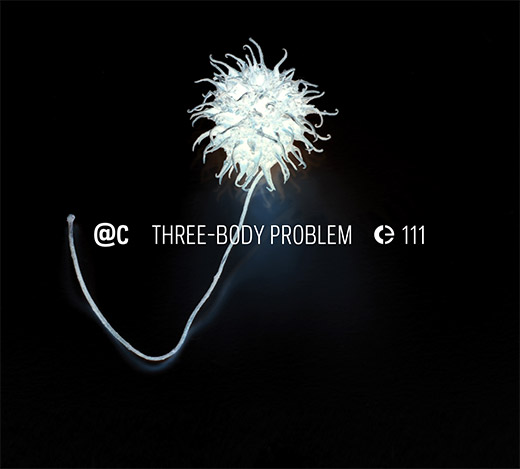
Another fresh one from the Portuguese Cronica imprint is “Three-Body Problem”, the sixteenth – sic! – full-length album composed by @c which is based on the music the duo of Pedro Tudela and Miguel Carvalhais composed for the puppet theatre play “Agapornis” back in 2014. Whilst track “Transcendence 115” has already been introduced a few days ago we’re now in for a full review of the entire, hour-long album piece on these pages. Derived from a commissioned production the pair of producers – with the help of several musicians contributing harp, trumpet, bell and vocal sounds amongst others on various bits and pieces – rolls out a sonic landscape of mostly mechanical, robotic and superincumbent nature that seems to rely on repeated actions, surface attrition, moving apparatuses and mostly, dark’ish, Drone-referencing electronics which, in its most psychotic moments, turns out to be the hell’ish soundtrack of threatening nightmares like in the fear-inducing, vocal-morphing “Sleep 114” whilst tunes like “Cage 116” or “Prophecy 117” provide and emulate the haunting, slightly unsettling feel of alien swamps for those appreciating Dark Ambient to the fullest before the full nine minutes of “118 Reduction / Reflection” come across in a kind of calm and folksy, Indietronic-influenced manner and the concluding “119 Collapse” even induces hints of harp-led romanticisms despite the sonic turmoil and uproar happening in the albums most extended bit. Defo a good one, this!
via Nitestylez
Tomorrow: @c presents “Three-Body Problem†in Porto
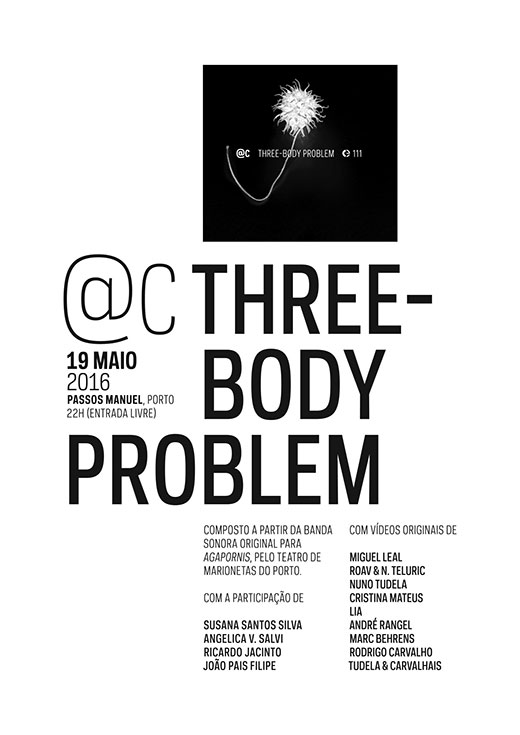
Pedro Tudela and Miguel Carvalhais will present their new album, “Three-Body Problemâ€, with a session of videos featuring new works from Miguel Leal, Roav & N. Teluric, Nuno Tudela, Cristina Mateus, Lia, André Rangel, Marc Behrens, Rodrigo Carvalho, and Tudela & Carvalhais.
“Three-Body Problem†is @c’s newest album, composed from the original soundtrack to “Agapornis†by Teatro de Marionetas do Porto, and featuring Susana Santos Silva, Angelica V. Salvi, Ricardo Jacinto and João Pais Filipe.
It’s next May 19, in Passos Manuel, starting at 22h. Entrance is free!
TRANSCENDENCE 115 from Lia on Vimeo.
“Roha†reviewed by Kindamuzik

Wat het is, is het. Weinig meer moet dat zijn voor Andreas Trobollowitsch. Zijn gevonden geluiden worden nauwelijks door de mangel gehaald. Hij componeert en improviseert ze tot narratieven waarin een organische verteltrant afgewisseld wordt met druk hak-op-de-tak-gekakel van een warhoofd. ROHA richt de oren echter vooral naar het grote talent van Trobollowitsch om het potentieel in klanken te horen, herkennen en uitbuiten, zowel tonaal, als qua timbre.
Trobollowitsch knipt en plakt een vorm van concrete muziek in elkaar die volop ademruimte kent; alsof hij in een white cube-galerie een expositie mag cureren. Daarin zijn lijnen te trekken tussen bepaalde onderdelen, andere botsend juist hortend op elkaar of spiegelen, schuren en schurken. Trobollowitsch kiest ervoor die draden van connectie of mogelijke verwantschap slechts ten dele te onderstrepen. De elementen krijgen zo de kans in dialoog te treden en aan scherpte te winnen; juist in samenhang, tegenover de losstaande presentatie.
ROHA kent niet veel vaart; de plaat vraagt en biedt kalme contemplatie. Ronkend feedbackende riffs worden naast prepared piano gezet. Schrapend metaal doet de gedachten gaan naar Tinguely’s machinekunst of Twilight of the Dreamboats van Chas Smith en ondertussen wordt de resonantie van houten klankkasten verkend alsof je met je oor er tegenaan ligt. Contemplatief luisteren dus, niet op een zweverige manier, maar geluid wegend, proevend, smakend – overwegend ook. Wie er de tijd voor neemt, wordt beloond met muzikaliteit en klankkunst. Sven Schlijper
via Kindamuzik
Tel Aviv release event for Ran Slavin’s “Bittersweet Melodiesâ€

Crónica of a Bittersweet event: CD release and deep listening event. May 18 from 21:00 to 23:00 at Uganda, Tel Aviv.
More information at the FB event.
Soon in Crónica: “X​-​RUN​-​4 Prismatiqueâ€
